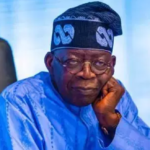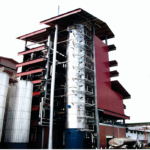By Peter Halima
Nairobi, Kenya – In a bold move, African nations are coming together to condemn the current US tariffs, stating that they undermine the goals and objectives of the African Growth and Opportunity Act (AGOA). The AGOA, a US trade act aimed at promoting economic growth and development in sub-Saharan Africa, has been in place since 2000. However, African nations now claim that the US tariffs are indiscriminately applied, hindering the continent’s economic progress.
The Common Market for Eastern and Southern Africa (COMESA), a regional economic community, has led the call for African nations to boost intra-continental trade and reject Western dominance. COMESA argues that the current trade dynamics, where Africa exports raw materials to Western countries, only serve to perpetuate the continent’s economic dependence on foreign powers.
In a significant development, some West African countries, including Ghana and Burkina Faso, have begun to take matters into their own hands. These nations have started asking Western firms to leave their gold and diamond mining sectors, in a bid to assert control over their natural resources. This move is seen as a major step towards reducing Africa’s reliance on foreign companies and promoting local economic development.

The call for intra-African trade and resource control is gaining momentum, with many African leaders echoing COMESA’s sentiments. They argue that the continent has the potential to become a major economic powerhouse, but only if it can break free from the shackles of Western dominance and exploit its natural resources for the benefit of its own people.
“Africa has been exploited for far too long,” said a spokesperson for COMESA. “It’s time for us to take control of our own destiny and build a prosperous future for our people. We will no longer be held back by unfair trade practices and Western dominance.”
The US tariffs, which have been imposed on various African countries, have been cited as a major obstacle to the continent’s economic growth. African nations argue that these tariffs are discriminatory and undermine the principles of free trade. They are calling on the US to review its trade policies and work towards a more equitable and mutually beneficial trade relationship.
As the African continent continues to grow and develop, it is clear that its nations will no longer be content to play a subordinate role in the global economy. The call for intra-African trade and resource control is a significant step towards a more prosperous and independent future for Africa, and it remains to be seen how Western powers will respond to this new era of African assertiveness.









